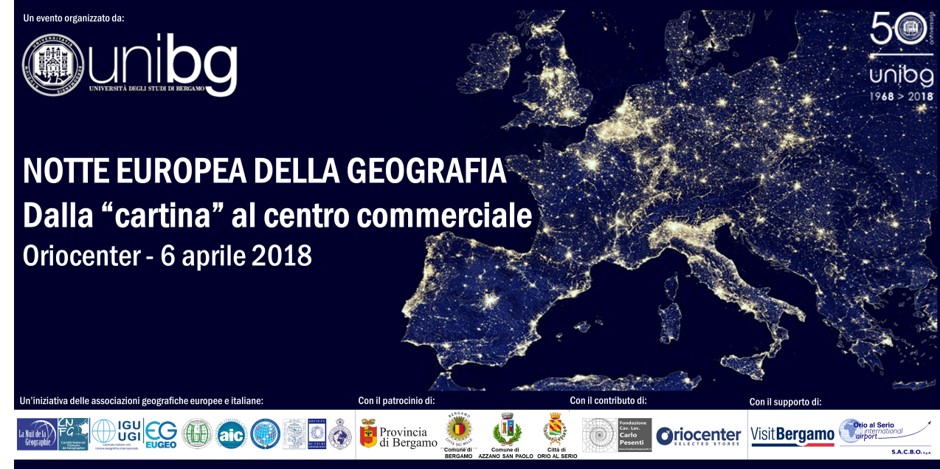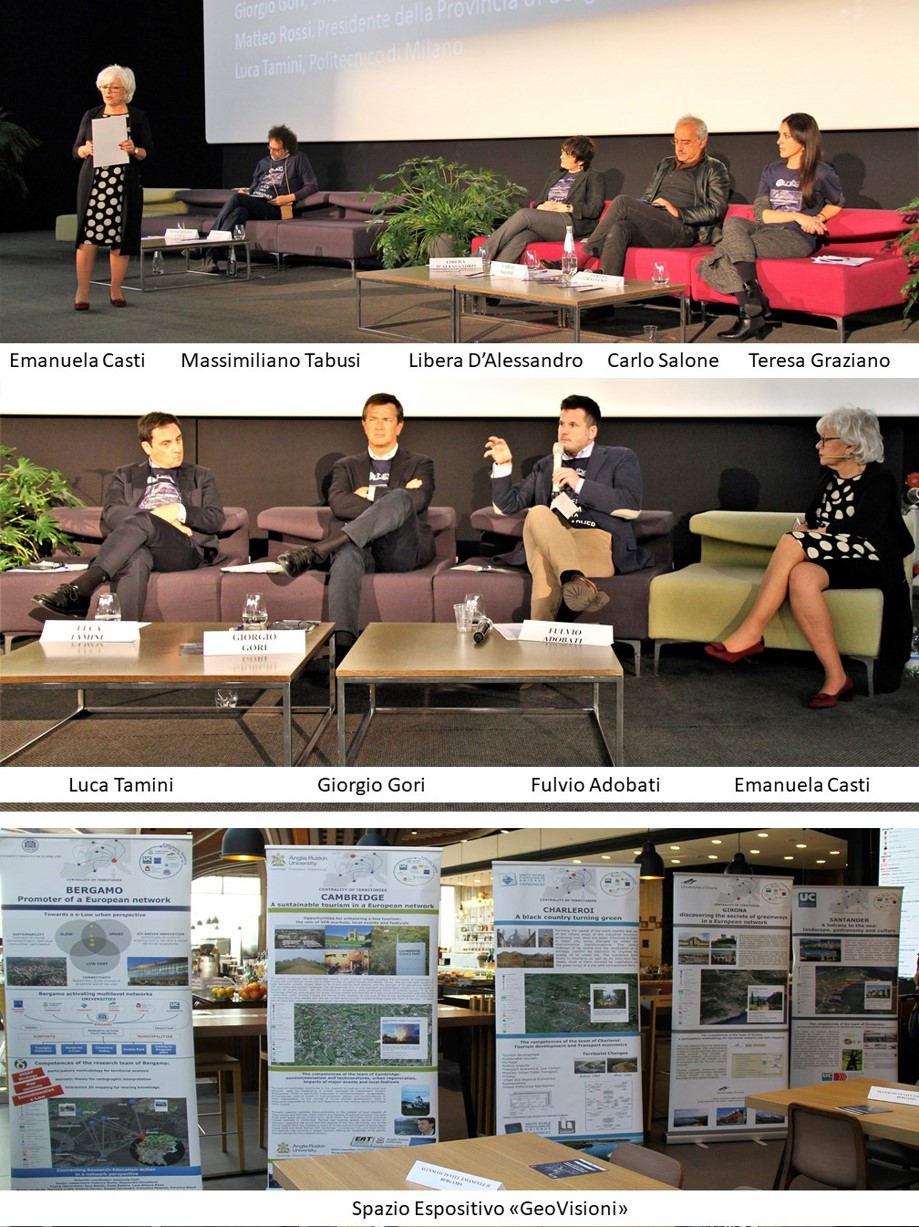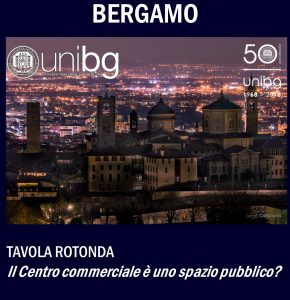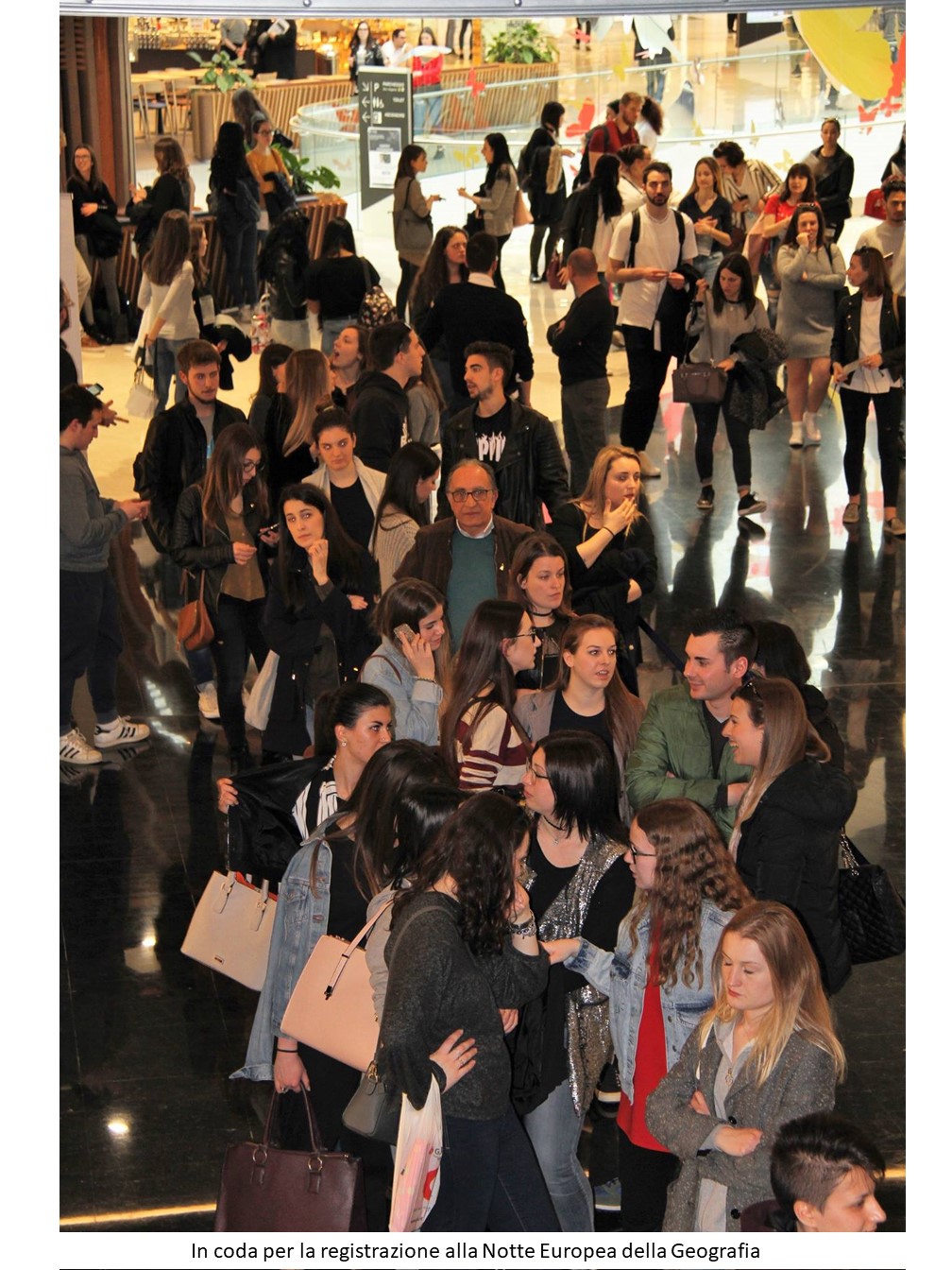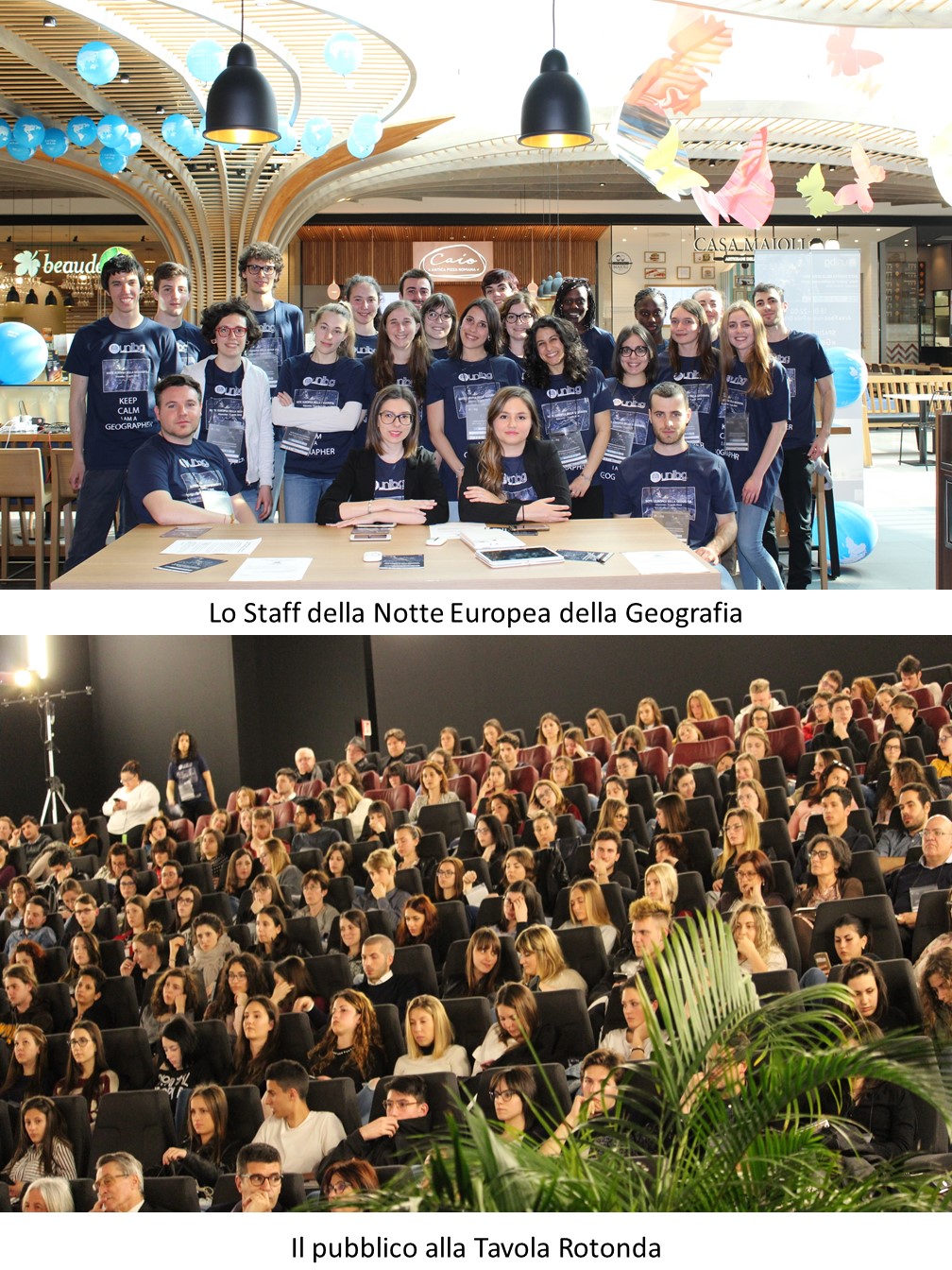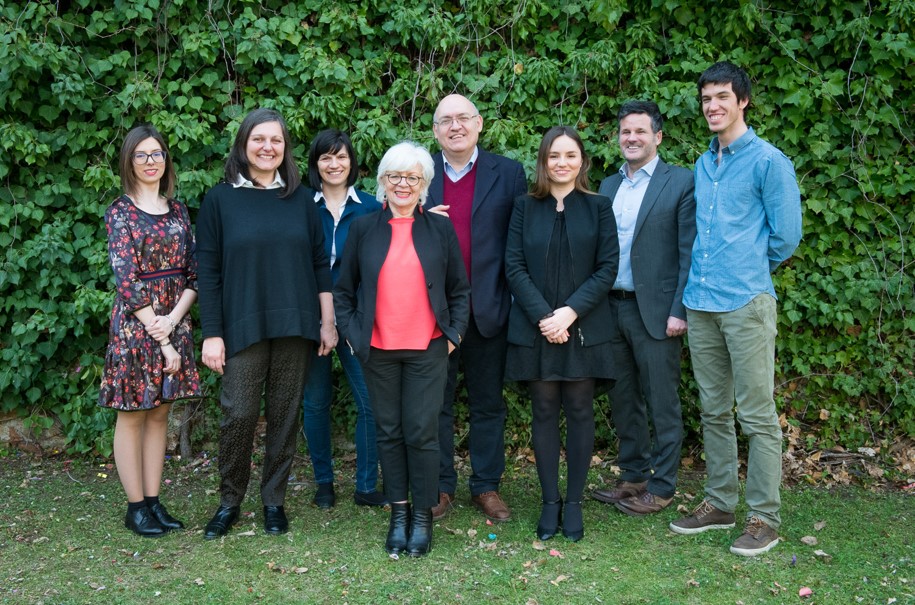6 April 2018 – Bergamo, Oriocenter – The Bergamo edition of the European Night of Geography, entitled From the “map” to the shopping center, was organized by the CST-DiathesisLab, University of Bergamo, with the support of the Pesenti Foundation.
The European Night of Geography is an initiative promoted by EUGEO (European Association of Geographical Societies), AGeI (Association of Italian Geographers), the Italian Committee for International Geographical Union and all other national and European geography associations. The program consists of a series of events–involving geographers, universities, research laboratories, travel and tourism associations, stakeholders.
Geographers leave the academic grove and engage with the wider community to tell about what Geography has become over the last years and what it has to offer as a strategic response to the challenges and problems related to urban regeneration, the environment, mobility–in short, to all the new social phenomena diffused in the territory>.
Geography has changed “glasses” to look at the world through, and has gone beyond traditional maps to represent it, creating innovative, interactive and multimedia cartographic methods./p>
The event in Bergamo was structured in four different moments:
- a round table on the role of Geography in the analysis of urban systems, public spaces and the new concept of “inhabitant”, entitled “Is the shopping mall a public space?”
- an exhibition space with interactive mapping tools, infographics and videos on environmental planning, international tourism and urban planning and regeneration.
- an excursion entitled “Bergamo at different speeds: from the steppe-like to the car-parking landscape”; a reasoned itinerary from the Oriocenter Shopping Mall to the “Caravaggio” international airport at Orio al Serio to rediscover the value of slow mobility, in a context of accelerated mobility, and to reconstruct the landscape evolution of the intermodal terminal.
- the “GeoMapLab”: webmapping application lab sessions focused on participatory mapping–working on tablet PC or laptop/desktop computer–where citizens are involved in creating maps with open source GIS methodology.
Panel discussion. “Is the shopping mall a public space?”
Moderator:
Emanuela Casti, Director of the CST-DiathesisLab of the University of Bergamo
Opening speech:
Giancarlo Bassi, President of the Oriocenter Shopping Mall Businesses Association
Interventions by geographers:
Libera D’Alessandro, “L’Orientale” University of Naples
Giuseppe Gambazza, University of Milan
Teresa Graziano, University of Catania
Carlo Salone, University of Turin
Massimiliano Tabusi, University for Foreigners of Siena
And with:
Fulvio Adobati, University of Bergamo
Giorgio Gori, Mayor of the Municipality of Bergamo
Matteo Rossi, President of the Province of Bergamo
Luca Tamini, Polytechnic of Milan
The European Night of Geography in Bergamo
The choice of the Oriocenter Shopping Mall as the venue for the European Night of Geography was fairly provocative, but it was meant to show how Geography has contributed to the analysis of relationships between commercial and public spaces in the era of globalization.
A new way of looking at the “city”: on the one hand, as an “organism” no longer divided into center/surroundings, but rather as an osmotic system centered on mobility; and on the other, as an international node within a network of local-global dynamics.
Using a combination of different communication tools (verbal, visual, hypertextual and direct observation), the event underlines the role of Geography in the analysis of urban transformations through the mapping systems developed by the CST-DiathesisLab of the University of Bergamo, among which the so-called RIFO research on Lombardy urban regeneration(www.rifoit.org).
The Oriocenter–connected to “Caravaggio” international airport–is one of the largest malls in Europe, well performing its new role of hyperplace intercepting and combining various forms of mobility (air/car/pedestrian) of its inhabitants (citizens, tourists, commuters, migrants) under the banner of shopping, leisure, work, services and cultural activities, as the node of a new reticular urban network involving Bergamo and its territory.
The Diathesis Cartographic Laboratory
Founded in 2004 by Emanuela Casti, it is a research and innovation unit for the study of cartographic systems from a theoretical and applicative perspective.
The DiathesisLab works on a cartography that moves from topographical (topos) to chorographical descriptions (chora) to draw maps serving political and social objectives, such as participatory local planning; i.e. a cartography conceived as a tool for upholding the rights of local communities against the ruling hegemony, to promote governance between the actors involved and to redress the asymmetries of power (Casti, 2013).
Diathesis, by its very name, emphasizes this perspective: thanks to the exquisite flexibility of the Greek language, it refers to the Strabonian “geographical description” while combining the meanings of “organization” (disposition, ordering) and “idea” (concept, quality), thus recalling the complexity of a social representation of space. And it’s not all. The preposition “δια” indicates motion, crossing and causality, inseparable characteristics of the contemporary world.
Under the patronage of: Province of Bergamo, Municipality of Bergamo, Municipality of Azzano San Paolo, Municipality of Orio al Serio.
With the contribution of: Pesenti Foundation, Oriocenter Shopping Mall.
With the support of: Visit Bergamo, SACBO.
The European Night of Geography in Bergamo
DIRECT STREAMING OF THE ROUND
INTERVIEWS WITH ORGANIZERS AND SPEAKERS
